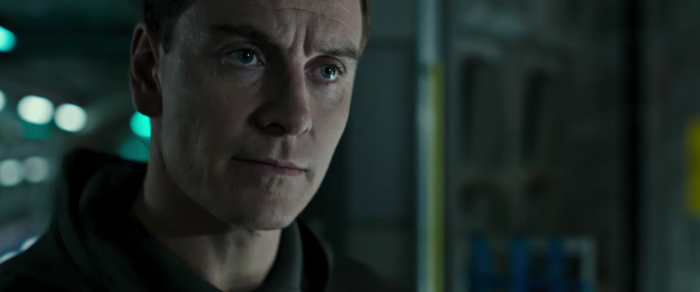What is the Tribeca Film Festival? That is: what makes it unique? What type of festival is it? Does it have an identity, even one not as defined as Cannes or Sundance? These are questions all film fests must ask themselves, and over its 13 years Tribeca has come closer and closer to answering it. What defines it — and more importantly what makes it special — seems to be a combination of things: films with local pride, small films (mostly American) with names and, most importantly, fascinating and sometimes challenging documentaries. Once again this year, which runs from April 15 through the 26th, non-fiction triumphs over fiction, though there are a handful of narrative tales that find fresh and exciting new ways to do storytelling. Music too is becoming a key part of its identity, with at least two terrific and intimate portrayals of very different musical gods. But there are over 100 films screening over its two weeks. We didn’t see all of them, so we can’t report on the quality of heavy-hitters like “Maggie” (the zombie drama — not horror or thriller: drama — starring Arnold Schwarzenegger) and “Grandma” (the Lily Tomlin-Jane Fonda road movie). But following is a handful we can recommend. (For showtimes, tickets and other official business, visit their site.) ‘Among the Believers’ ‘As I Am’ ‘The Birth of Sake’
This invasive doc opens with a young boy shouting about jihad against non-believers, but it’s the man sitting next to him that truly curdles the blood. He’s Maulana Aziz, the leader of a Pakistani mosque that preaches what others don’t: that Islam needs to take over the world, even if by force. And yet Aziz is grandfatherly: a quiet, calming, ever smiling presence. The doc that earned his trust walks a fine line, showing him as a more complex, even haunted figure — he lost a son to martyrdom, which he encouraged but visibly regrets — even as it doesn’t hide the danger he encourages. It’s the kind of film that’s actually useful in the debate about terrorism; Aziz, and those he readies, aren’t evil but misdirected, and through that tact we can come to understand not only them but what turned them into what they are.
The late DJ AM, aka Adam Michael Goldstein, was one of the first DJs to become a name, first with his skills, later with his skills combined with his habit of dating tabloid celebrities (like Nicole Richie). The official doc on his life makes sure you see him more as an artist, and also as a person who struggled with drug addiction. Goldstein was someone who turned DJing into a true musical skill; not only could he mix and match and scratch, but he also popularized the short spin, playing only portions of songs before connecting them to another, then another, etc. The quicksilver speed with which he switched songs was as impressive as a boffo guitar solo. His personal demons are handled with the right amount of empathy, never playing the blame game but understanding that once it hooks into someone drug addiction never, ever lets go, even in remission.
Heavy on mood but hardly short on intel, this look at a 140-year-old Japanese brewery is a hushed and contemplative affair, over half of which is hypnotic stares at rice being raked and liquid being heated. (It’s shot in the rectangular-shaped cinemascope — a rare stylistic move for a doc.) It’s as gentle as the workers, but equally mournful. Their job is monastic, forcing them to spend half the year away from their families and holed up, much like shipworkers off on a long stint. That they’re practicing a dying art doesn’t help either; the number of breweries has dropped over the last century by over a fourth, and they worry that they may be dedicating their lives to a tradition that’s on the way out completely.
‘Drunk Stoned Brilliant Dead: The Story of the National Lampoon’
The National Lampoon magazine’s ultimate legacy may be their name in front of a devolving rash of movies, but their official doc mostly sticks with the rag itself — a hotbed of sometimes sour, usually vicious (or just horndoggy) satire that attracted some of the ’70s’ best curmudgeons. The story gets sad almost two decades before “National Lampoon’s Senior Trip” (whose elision wastes the chance to show off young star Jeremy Renner); some key members burn out fast, and those that didn’t wound up scooped up by “Saturday Night Live.” It’s a celebration more than an exploration, which is to say it doesn’t get too introspective about the ’zine’s frattish, sexist dude atmosphere, despite some token women writers. (Plus two token conservatives; even John Hughes could be pretty savage.) It’s a rollicking ride told by talking heads belonging to people who couldn’t believe what they got away with, and questionable though they could sometimes be, the glee is contagious.
‘Kurt Cobain: Montage of Heck’
Nirvana has wrought a diverse (and almost entirely non-cash-in) stable of cinema, from a Gus Van Sant art film (“Last Days”) to reckless Nick Broomfield reportage (“Kurt and Courtney”) to a hypnotic/intimate abstract doc (“Kurt Cobain: About a Son”). The one by Brett Morgen (“The Kid Stays in the Picture”) is the only one that’s life-spanning, and yet it’s also the most experimental — a sometimes unnervingly intimate look at Cobain not as a rock star but as a traumatized kid who became someone who couldn’t deal with the miseries of rock stardom. Morgen is one of the too few documentarians who favors aesthetic sensation over mere facts, and while there’s a handful of talking heads but the bulk is archival footage and home movies (with animation filling in the parts for which there’s no change of footage), and Morgen constructs it into something that’s as close as he can imagine Cobain would have wished it. He skips or buries the biggest hits (the album version of “Smells Like Teen Spirit” isn’t spun until the end credits), making sure it honors Cobain’s distaste for pomp and attention. When Nirvana finally bursts into the mainstream, instead of a triumphant montage Morgen gives us a depressive slog through endless press tours that instantly crush Cobain’s spirit. It’s a deceptively messy look at a messy life, as much about his anxieties as his joy; the cinema year will gives us few pleasures like the one of him singing “Manamana” to his newborn.
‘Men Go to Battle’ ‘Slow West’ ‘The Survivalist’ ‘(T)ERROR’ ‘Tom Swift and His Electric Rifle’ ‘Very Semi-Serious’ ‘Wednesday 04:45’ ‘The Wolfpack’ Outside-the-box (i.e., not just film):
Also like any film festival, it’s not just about films. Some events marry cinema to another medium, be it the presentation of the Harold Lloyd comedy “Speedy” with a mash-up score by DJ Z-Trip or MST3K alum RiffTrax bestowing their professional mockery upon Tommy Wiseau’s bad cinema landmark “The Room.” Musical performances are paired with some of the films, including a Ludacris set after opening night “Saturday Night Live” doc “Live from New York!” Mary J. Blige performing after the screening of the doc “Mary J. Blige — The London Sessions.” And it’s not just enough to have a 25th anniversary screening of the newly re-restored “Goodfellas”; Martin Scorsese and cast will talk after, moderated by superfan Jon Stewart. And while Monty Python have a rich body of cinematic work, it’s not the screenings of their films in the fest that stand out so much as the night when surviving members themselves. The now-quintet will be on hand for another of their now semi-common reunions, and maybe this will be the one when Eric Idle opens up about “Splitting Heirs,” “Nuns on the Run” and “Casper.” The 2015 Tribeca Film Festival runs from April 15 through April 26. For tickets, showtimes and so on visit their site. Follow Matt Prigge on Twitter @mattprigge
The period piece, and especially the Civil War drama, tends to get dressed up in stiff recreation duds. In the respect, this indie take is unlike any film of its kind. Telling of two brothers split by the vagaries of war, it’s an intimate jaunt that owes as much to history as it does to “mumblecore.” (Indie queen Kate Lyn Sheil, who has a small role, is also a screenwriter.) Rather than stand in place, declaiming un-sayable clunkers, the actors shamble through believable banter while the film hurtles pitilessly through an era that wasn’t too kind to humankind.
The latest oddball neo-Western — after “The Salvation,” “The Homesman” and the art film/mindf— “Jauja” — is perched somewhere between a straight-up genre entry and a dreamy, comic lark. Michael Fassbender does fine laconic work as a taciturn badass helping a gawky youngster (Kodi Smitt-McPhee) reunite with his beloved. The pitilessness is matched and tempered by a deadpan absurdist streak, which films the sometimes violent action as black-out sketches told in compositions that seem tightly composed without being stiff. It’s masterly in quiet, weirdly funny ways, and proof that a genre presumed dead has evolved into something rich and strange all over again. Life, as Michael Crichton said, will find a way.
Post-apocalyptic fare is as multitudinous as comic book movies, though at least there’s more diversity. What makes this Irish entry special is its minimalism. There’s only three main characters, and for the first 15 minutes only one — a driven, half-crazed, never-named loner (Martin McCann). Until his forest cabin/fort is happened upon by two women (Olwen Fouere and “Nymphomaniac”’s Mia Goth) there isn’t even any dialogue. Things go south in sometimes predictably nasty ways, but at its best it captures the neuroses that arise from three-person cohabitation, especially when two of them pair off and leave the other a despondent third wheel. Comparisons to Cormac McCarthy are inevitable, though it’s far more sentimental, especially when characters talk about avoiding sentimentality.
The fest’s most annoying title at least belongs to one of its most dedicated and accomplished films, which goes the distance with “Shariff,” a 60-something FBI informant enlisted in the wake of September 11 to rat out fellow Muslims who may (or may definitely not) be getting in deep with terrorists. A former Black Panther who once looked down on stool pigeons, he’s become a man effectively without a country, including America, which uses him and abuses others, including locking up some of his targets on mere technicalities. Not that “(T)ERROR” is just about fumbled anti-terrorism tactics. It’s a chilling portrait of loneliness, with Shariff forced to live a life filled with subterfuge and faked connections, and all to survive on the most meager of resources.
Sold as a definitely safe replacement for police firearms, the trusty taser might be more deadly than claimed by its makers, who are seen in this advocacy doc testily defending the very idea that their product may have been insufficiently tested. Documentarian Nick Berardini isn’t afraid to get lost in archival footage, including a tense grilling of taser inventors Rick and Tom Smith, which all makes for more dynamic cinema than a more traditional bout of mere talking heads and clips. (And it’s a sometimes funnier one too; one of the more heated debates is a protracted duel over whether one of the Smiths can hit the bathroom mid-deposition.) Berardini’s side is never in doubt, but it’s about something bigger than that, concerning the possible inevitability of police brutality and the way humankind regularly turns itself over to quickie solutions that make their expoliters millions.
The reliably droll cartoons that run in the New Yorker may not warrant a full-length doc of their own, but the one they got anyway is only mildly padded-out, ruminating on both the nature of comedy and, even more useful, the mindset required to be a ritually rejected freelancer. Art director Bob Mankoff is the benevolent mensch who quietly breaks the hearts of aspiring cartoonists, including those who’ve gotten over 1000 entries into the magazine. But his battery of stringers are the real stars, showing how they fight to find jokes that are both instantaneously funny and deeply profound. (Or at least make fun of the wealthy readership; fair-trade cocaine gags always kill.) Quiet and ruminative, it also fills the screen with some of its better toons, so there’s that too.
Most of the fiction films at Tribeca tend to be American, but among the handful of imports is this eccentric Greek thriller, which wallows in the fatalism of an Athens jazz club owner grouchily reluctant to sign off his bar to a Romanian gangster. The tone is only a couple shades darker than the comic one that fueled last year’s Marky Mark remake of “The Gambler,” teeming with a nasty sense of humor and sarcastically deployed songs. The lighting is often just a few f-stops higher than pitch black, though, and the heavy use of lens flare and David Fincherian long lenses will serve director Alexis Alexiou well in his clear bid for Hollywood glory.
Cinephilia has gripped few like it has the subjects of this troubling and fascinating doc, which hangs with a legion of ponytailed teenage boys whose parents rarely let them stray outside their LES high-rise. When we say “rarely,” we mean there have been years where they’ve only strayed out once, if that. Indeed, lurking under the funny/endearing recreations of Quentin Tarantino and Christopher Nolan movies (complete with impressive costumes and paper guns) is a portrait of a form of child abuse, made all the more disturbing for being largely suggested. Their father skulks about the movie, hiding in the apartment and forcing his sons and wife into a prison-like existence, enduring matters that are likely worse than are shown. When they start escaping one by one into the real world (and at one point just to an actual movie theater) it’s as moving as any tearjerker, but without the histrionics.



















